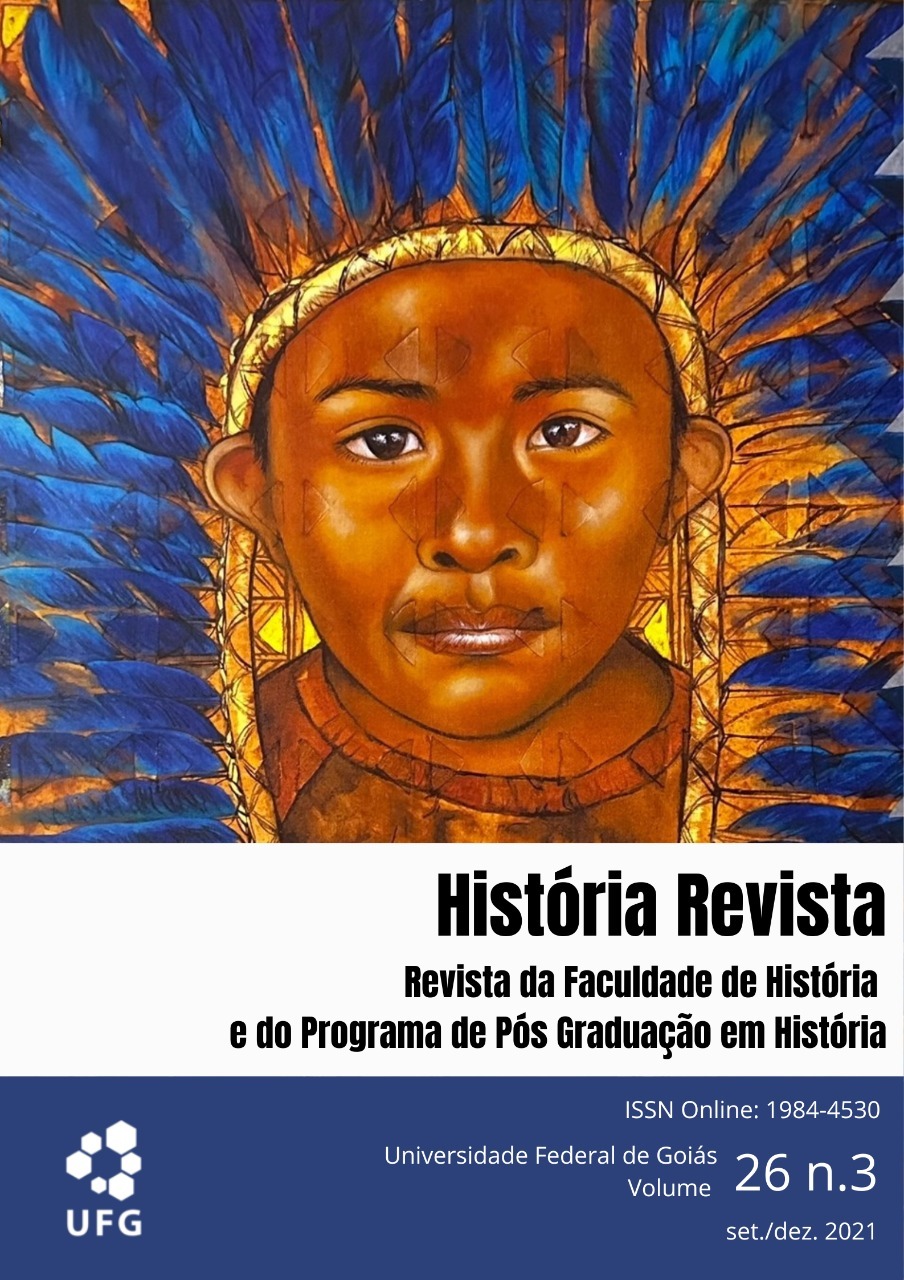Para além dos direitos culturais
DOI:
https://doi.org/10.5216/hr.v26i3.74329Palavras-chave:
Derechos Culturales, Mundo digital, Progresividad, Victimas, InterdependenciaResumo
En este texto, la propuesta inicial es analizar a nivel teórico y desde el sistema-mundo de Wallerstein el significado de la cultura como un derecho humano y el papel de los derechos culturales en general. Para ello, se considera que el conocimiento sobre el funcionamiento de determinados pactos, convenios, observaciones, tratados y recomendaciones, entre otros, resulta fundamental para analizar y entenderla en su contexto como un derecho inherente a las personas. Por lo tanto, se abordarán temas generales de los derechos humanos, de los instrumentos jurídicos del Derecho Internacional de los Derechos Humanos, y en específico del sistema interamericano que compete a nuestra región sin dejar de lado nuestra regulación interna actual en México. Luego se hará hincapié en las particularidades de los derechos culturales en los que ya se incluye el llamado “mundo digital”. Se trata de una reflexión transdiciplinaria que pretende ir más allá de los estudios convencionales en esta materia. Por otro lado, se hará énfasis en la importancia de la cultura como mecanismo para el reconocimiento de otros derechos y lo que esto significa, el papel del Estado, las políticas públicas y finalmente la importancia de reconocer las diferentes culturas para garantizar el desarrollo integral y respeto a la dignidad de toda la sociedad, incluyendo a los sectores históricamente olvidados y marginados, siempre con la apertura en este ámbito buscando consensos tomando en cuenta nuestras diferencias y alcanzando el grado más alto posible del principio de progresividad en Derechos Humanos así como la defensa y la atención de las víctimas y la reparación del daño
Downloads
Referências
ARIAS LÓPEZ, Boris Wilson. 2016. La construcción argumentativa de la universalidad de los derechos humanos: el diálogo entre culturas. Revista IUS, v. 10, n. 37
ARIAS MARÍN, Alan. Ensayos críticos de derechos humanos, Tesis, imperativos y derivas. CDMX: CNDH, 2016.
CARMONA TINOCO, Jorge Ulises. El derecho humano a la cultura y su protección internacional. Derecho y Cultura. México, n. 8, 2003.
CARR, Nicholas G. The amorality of web 2.0. Rough Type, 3, Octubre, 2005. https://www.roughtype.com/?p=110
COMISIÓN DE LAS COMUNIDADES EUROPEAS. 1995. Libro Blanco sobre la Educación y la Información. Enseñar y aprender, hacia la sociedad cognitiva. Bruselas.
DURAND ALCÁNTARA, Carlos Humberto. El Derecho humano a la cultura de frente a la nueva constitucionalidad en la Ciudad de México (Una prospectiva crítica). Alegatos, n. 93, 447-464, 2016.
GARCÍA CANCLINI, Néstor. La Globalización imaginada. Barcelona: Paidós, 1999.
GUARAGLIA, Malvina. Derechos humanos, cultura y literatura. Un ejemplo en la narrativa de denuncia social latinoamericana. Revista Latinoamericana De Derechos Humanos, v. 8, n. 2, 91-117, 2018.
HABERMAS, Jürgen. El concepto de dignidad humana y la utopía realista de los derechos humanos. Diánoia, v. LV, n. 64, 2010.
HABERMAS, Jürgen. Facticidad y validez. Sobre el derecho y el Estado democrático de derecho en términos de teoría del discurso. Madrid: Trotta, 2010.
HABERLE, Peter. El Estado constitucional [Estudio introductorio de Diego Valadés, traducción e índices de Héctor Fix¬Hierro]. Buenos Aires: Astrea, 2007.
LACAN, Jacques. 1977. Los cuatro conceptos fundamentales del psicoanálisis, (Buenos Aires: Barral). Problemes cruciaux de la psychanalyse inédito. La lógica del fantasma, inédito.
LOZOYA, J.A. 1985. La cultura y los derechos humanos. Revista mexicana de política exterior, n. 8.
LEVI, Primo. Si esto es un hombre. Barcelona: Península, 2018.
MCKEON, Richard. Las bases filosóficas y las circunstancias materiales de los derechos del hombre”, en Los Derechos del Hombre. Estudios y comentarios en torno a la nueva Declaración Universal, editado por la UNESCO. México¬Buenos Aires, Fondo de Cultura Económica), 1949.
MIKUNDA FRANCO, Emilio. Filosofía y teoría del Derecho. En Una aproximación panorámica al pensamiento del autor, editado por Peter Häberle. [Prólogo de Peter Häberle, nota de Francisco Fernández Segado]. Madrid: Dykinson Constitucional, 2009.
REMEDI, Gustavo. ¿Esqueletos en el ropero? Los derechos humanos desde la cultura. Cuadernos del Claeh, v. 31, Issue 96/97, 41-67, 2008.
SÁNCHEZ VÁZQUEZ, Adolfo. Adverso y reverso de la tolerancia. En La universidad y la tolerancia, editado por Rafael Cardera Campos y Eugenia Husta Bravo. CDMX: UNAM, 1996.
SANTOS, Boaventura de Sousa. De la mano de Alicia. Lo social y lo político en la posmodernidad. Bogotá: Siglo del Hombre Editores, 1998.
VRDOLJAK, Ana Filipa. Liberty, Equality, Diversity: States, Cultures, and International Law, En The Cultural Dimension of Human Rights. Oxford: Oxford University Press, 2013.
Downloads
Publicado
Como Citar
Edição
Seção
Licença
Declaração de Direito Autoral
Concedo à História Revista o direito de primeira publicação da versão revisada do meu artigo, licenciado sob a Licença Creative Commons Attribution, que permite o compartilhamento do trabalho com reconhecimento da autoria e publicação inicial nesta revista.
Afirmo ainda que meu artigo não está sendo submetido a outra publicação e não foi publicado na íntegra em outro periódico, assumindo total responsabilidade por sua originalidade, podendo incidir sobre mim eventuais encargos decorrentes de reivindicação, por parte de terceiros, em relação à autoria do mesmo.



